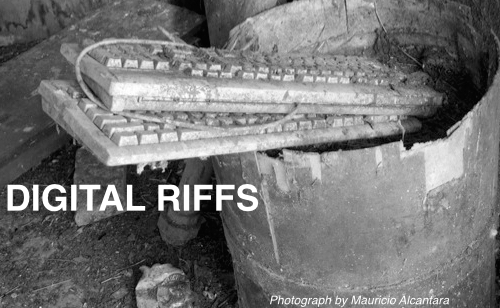I've been thinking a lot lately about a theme I broached in my inaugural lecture, the parallels between the industrial and agricultural changes in Britain in the late 18th and 19th centuries and the current digital revolution. I feel that the changes associated with the Industrial Revolution give us a better framework for interpreting present changes than the arrival of print in Western Europe in the 15th century.
I want to explore these themes more deeply in my keynote for the Sheffield Digital Humanities Congress in September, but when I was invited to speak at Birmingham City University at the excellent InterFace conference, organised by a talented group of postgraduates (and many thanks to Tychonas Michailidis for the excellent arrangements), it seemed a perfect opportunity to try out some of my ideas in the city of Matthew Boulton and James Watt.
I became fascinated by Watt's project to build a Sculpture Copying Machine, which, with Watt's proposed use of artificial stone in liquid form, seemed extraordinarily like 3D printing. The way in which a team from the Science Museum and from UCL had afterwards used 3D scanning to recreate a bust of Watt from moulds found in his workshop seemed to bring the story full circle.
The slides from my talk to InterFace are available here.
It was very worthwhile trying out these ideas in Birmingham - I had some helpful and constructive response from the audience, but using history to make comments on current digital cultures is complex. Space makes it difficult to avoid turning the discussion of figures like Watt into a eulogy in the manner of a latter-day Samuel Smiles. In considering how history helps us understand the digital, its striking how the history can lose out. It was useful to have had some practice in trying to balance this out before I hit Sheffield in September...







